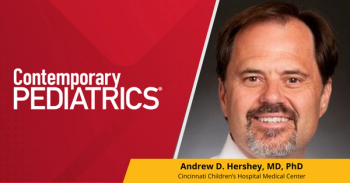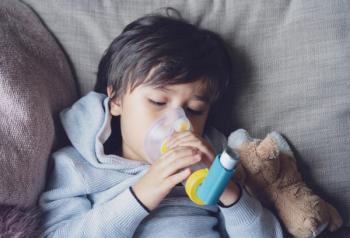
Updates
Advocates for children join UN peacekeeping missions, Assessing the risk for RSV, Vaccinating for HAV: So far, not so good, Resources for pediatricians, The eggs are OK, but watch out for the orange juice; Eye on Washington
UPDATES
Advocates for children join UN peacekeeping missions
For the first time in the history of its international peace-keeping missions, the United Nations has begun to assign children's advocates to its operations centers abroad. The move is a response to reports from UN and non-governmental agencies detailing the plight of children in areas of the world torn by civil war. The first advocate was assigned in January to work in Sierra Leone, where the rebel army uses extraordinarily brutal means to dragoon children as well as adults for service as slaves and soldiers in the war. Two other advocates are slated to take part in a peace-keeping operation in the Congo.
Olara A. Otunnu, the Secretary General's representative on children and conflict, described the advocates' duties as advising the heads of missions on children's issues, coordinating child assistance programs, and promoting special education and relief programs for children who have suffered physical and mental trauma in war. (For some details on this trauma, see last month's article on humanitarian disasters by Karen Olness, MD.) According to Mr. Otunnu, drawing public attention to the price children are paying in these wars is essential. The actors in civil war, whether rebels or government, are touched in a major way by international public opinion, he believes. "They know that if tomorrow they want to be Mr. President or Mr. Prime Minister, international acceptance and legitimacy will matter."
Assessing the risk for RSV
The Centers for Disease Control and Prevention now tracks outbreaks of respiratory syncytial virus (RSV) by region, providing data that can help you make choices about using the recently approved prophylactic drug palivizumab (Synagis) to protect high-risk children.
RSV is the most common cause of bronchiolitis and pneumonia in infants and young children, developing in 25% to 40% of infected children, most of them younger than 6 months of age. Between 0.5% and 2% of children with RSV infection require hospitalization, oxygen therapy, and possibly mechanical ventilation or ribavirin treatment. Outbreaks of RSV in the United States occur primarily between November and May and are monitored by the National Respiratory and Enteric Virus Surveillance System.
Palivizumab, the first monoclonal antibody to be licensed for prevention of an infectious disease, can be given as a monthly IM injection to children at high risk. The first dose should be administered before the RSV season starts in your part of the country. Given the seriousness of RSV infection and the lack of an effective treatment, prevention is of great importance. To view updates of data on RSV activity, go to the CDC Web site at
Vaccinating for HAV: So far, not so good
A year ago, the Advisory Commission on Immunization Practices (ACIP) recommended that states with an incidence of hepatitis A higher than the national average implement HAV vaccination programs for children. If the incidence of this serious liver disease is to be effectively reduced, says William Schaffner, MD, member of the ACIP working group and chairman of the department of preventive medicine at Vanderbilt University Medical Center, "we must implement widespread, routine childhood immunization, particularly in high-incidence states."
Unfortunately, when the Hepatitis Foundation International (HFI) reviewed compliance with the ACIP recommendations in the 17 states with higher-than-average rates of HAV infection, they found that immunization programs haven't yet gotten very far. According to the HFI, only one stateOklahomadeserves an "A" grade for requiring vaccination for kindergarteners, first graders, and seventh graders throughout the state. Three statesArizona, Nevada, and Texasget a "B" for requiring vaccination for children living in high-incidence counties or communities and for children in day care. Six statesCalifornia, Colorado, Missouri, New Mexico, South Dakota, and Washingtonhave achieved a "gentleman's C" by having requirements for school-entry vaccination "pending." Another sixAlaska, Idaho, Montana, Oregon, Utah, and Wyomingscrape by with a "D"; they've made "minimal effort" to conform to the recommendations. And finally, one stateArkansasgets an "F" for doing nothing at all. If you practice in one of these 17 states, promoting parental awareness of the risk of infection and the availability of a vaccine might be a good idea.
Resources for pediatricians
The following Web sitesand one old-fashioned, hard copy monographare sources of information of interest to pediatricians and child advocates.
Children's Mental Health: The Changing Interface Between Primary and Specialty Care, is a monograph that reports on the current status of children's mental health care and provides detailed recommendations for improvement. The report is a project of the Children's Mental Health Alliance at Children's Hospital of Philadelphia (CHOP). For more information, call Kajsa Haracz, Media Relations Specialist at CHOP, at 215-590-7092.
The eggs are OK, but watch out for the orange juice
Preliminary data just released from the Foodnet surveillance system shows that progress in containing food-borne infections is being made. Surveillance data from 1997 to 1999 show that illness from the most common bacterial pathogens in food has declined by nearly 20% (MMWR 2000;49(10):201). Infection with E coli O157:H7 has declined by 25% in this period, Shigella infections are down 41%, and Campylobacter infections are down by 19%.
The picture for Salmonella infection is more complicated. Cases of infection with the serotype associated with eggs, a major food problem since the 1980s, have declined somewhat, by 7% from 1998 to 1999. At the same time, several large outbreaks of salmonellosis caused by other serotypes have been traced to unpasteurized orange juice, imported mangos, and raw sprouts. When these two trends are taken together, the result is an overall increase in Salmonella infections in 1999.
Calendar
June 2830, Building Health Care Systems That Do No Harm, Dallas, TX, sponsored by the Joint Commission on Accreditation of Healthcare Organizations, and other groups. For information, call 312-274-9695, or access the conference Web site at
July 58, 34th National Immunization Conference, Washington, DC, sponsored by the National Immunization Program of the Centers for Disease Control and Prevention. For more information, go to the NIP Web site at
July 1619, International Conference on Emerging Infectious Diseases (ICEID) 2000, Atlanta, GA. For more information, call 202-942-9248, or e-mail
August 59, World Congress of Pediatric Gastroenterology, Hepatology, and Nutrition, Boston, MA. For information, visit the North American Society for Pediatric Gastroenterology and Nutrition (NASPGN) Web site,
Judith Asch-GoodkinContributing Editor
Eye On Washington
Last month, the fate of one 6-year-old child crowded out just about all other images from the national consciousness. Attorney General Janet Reno, Cuban dictator Fidel Castro, the child's father, and members of his extended family in Miami battled over the future of Elian Gonzales while the public watched in fascination. Local politicians and the Presidential candidates of both parties sought to gain political advantage by siding with the Florida relatives. Anti-Castro Cuban emigrés formed a human chain surrounding the house where Elian is staying, vowing to prevent the boy's return to his father in Cuba. In all the uproar, the well-being of the little boy at the center of the case seemed almost to be forgotten. Advocates for children can only hope that the final resolution of the dispute will be in his best interests.
Meanwhile, agencies of government not involved in the Gonzales case continued to transact business as usual.
The US Supreme Court, in a five-to-four vote, ruled that the Food and Drug Administration did not have the authority to regulate tobacco products. President Clinton immediately challenged Congress to grant that jurisdiction to the FDA, calling it "a life and death issue for children." The Court also agreed to hear a South Carolina case challenging the constitutionality of hospital programs that test pregnant women's urine so that illegal drug use can be reported to the police.
The Surgeon General issued Healthy People 2010: A Path to the Future, the third ten-year national health agenda the federal government has launched. The ten "leading health indicators" federal agencies will track are levels of physical activity, overweight and obesity, tobacco use, substance abuse, responsible sexual behavior, mental health, injury and violence, environmental quality, immunization, and access to health care. Pediatricians can find more information about Healthy People 2010 online at
The First Lady, reacting to recently published research documenting a trend toward increased prescription of psychotropic drugs to preschool children (see Journal Club for details), announced a major Administration initiative to promote a more reasoned approach to mental health treatment in the pediatric age group. The initiative will include an informational campaign for teachers and parents on the risks of psychotropic medications, development of new pediatric drug labels by the FDA, a National Institutes of Health study of the use of methylphenidate in children under 6 years of age, and a fall conference on the diagnosis and treatment of mental illness in very young children.
The Department of Education released a study called America's Kindergartners, based on data gathered from 22,000 kindergarten children and their families, schools, and classrooms. For most of the children studied, the news was good. They enter kindergarten in good health, able to get along with other children, and with skills like letter and number recognition they will need to master reading and math in the primary grades. But the study also documented a smaller group of 5-year-olds who do not possess these strengths, and found that these children are most likely to come from families that are poor and headed by a single parent or by parents who are not high school graduates or do not speak English. The children in the study will be followed for the next six years, to find out more about which children fall behind in school and how they can be helped.
Judith Asch-Goodkin. Updates. Contemporary Pediatrics 2000;5:11.
Newsletter
Access practical, evidence-based guidance to support better care for our youngest patients. Join our email list for the latest clinical updates.








